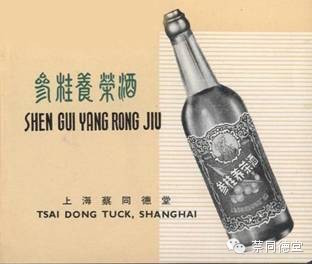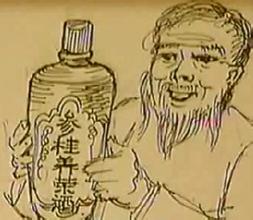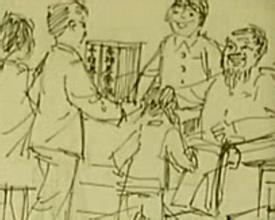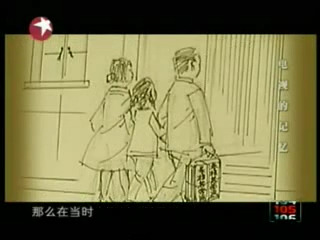Shengui Tonic Wine (lost first Chinese television advertisement; 1979)
Shengui Tonic Wine (参桂养荣酒, Shen1 Gui4 Yang3 Rong2 Jiu3 in Hanyu Pinyin) is a Chinese tonic wine notable for being the subject of the first television advertisement ever aired on mainland Chinese television.
Background
Advertising after the 1949 Communist Revolution[1], besides propaganda, was nonexistent, though not officially banned[2]. Matters would change in the late 1970s when for the first time in two decades, advertisements in China began to become normalized and widespread.
This was due to the death of Mao Zedong and Stepping down of Hua Guofeng which led to the end of the Cultural Revolution and a partial, gradual restoration of a market economy under the new paramount leader Deng Xiaoping, who took office in 1978. These reforms led to, for the first time, commercial television advertising, and the first television advertisement in Chinese history would air on 28 January 1979 on Shanghai Television. [3]
A driving force in the government relenting and allowing commercial advertising on television was the sheer burden of running so many television stations to cover the large country on tight post-Cultural Revolution budgets. Commercialization was, therefore, considered a necessary evil.
Premise
The advertisement was simple and primitive, especially compared to modern advertising standards in China and abroad. Sources and eyewitnesses agree that the advertisement lasted about 90 seconds and featured a girl and her parents going into a shop to buy a bottle of tonic wine as a gift to her grandfather, with not much else in the way of information on the ad itself.
Aftermath
The ad cast almost immediate ripples over Chinese media, with the commercial proving so controversial that it was almost pulled off the air after only thirty seconds.[4] The ad aired during the Chinese New Year, and was seen by a larger than normal audience. Many thought it was a short news story, as the concept of ads was completely foreign to those not alive before the Revolution, and confusion was rife. Nevertheless, the ad was a success, and the Shanghainese public went out in droves to purchase the wine they saw on television, despite the high price point.
Almost immediately, other Chinese television stations followed suit and began airing their own advertisements, the advertisement for Shengui wine opening the metaphorical floodgates and leading to the mostly commercial nature of modern Chinese television.
Status
The ad is completely lost, with only storyboards remaining, redrawn from memory by an audience member who had once viewed the ad. Home video recording technology in 1979 China was extremely rare, possibly even nonexistent, so likely the only hope of the ad resurfacing is it residing in STV's modern-day archives.
Artistic creativity
In 2021, the Chinese film "My Country, My Parents"(《我和我的父辈》), directed by Xu Zheng(徐峥), included a segment titled "AD MAN"(“鸭先知”). This segment's plot is centered on the inception of this advertisement, and dramatically reconstructed the storyline of it.[5][6]
Videos
Images
References
- ↑ In fact, before the implementation of "joint state-private ownership" in Mainland China in 1956, commercial advertisements had not completely vanished.
- ↑ https://www.jstor.org/stable/2645141
- ↑ https://www.whatsonweibo.com/chinas-first-television-commercial/
- ↑ https://web.archive.org/web/20150131084115/https://www.theworldofchinese.com/2010/01/chinas-first-tv-ads/
- ↑ Shanghai Wen Hui Daily: "In <My Country, My Parents>, Xu Zheng, metaphorically dubbed as 'AD MAN', excels not only in leveraging popular memes but also skillfully wraps the profound truth of educating children during the 'Double Reduction' policy era in comedy!"(Chinese) - 2021-10-05
- ↑ The promotional video of "My Country, My Parents" posted on Bilibili, a Chinese online platform



